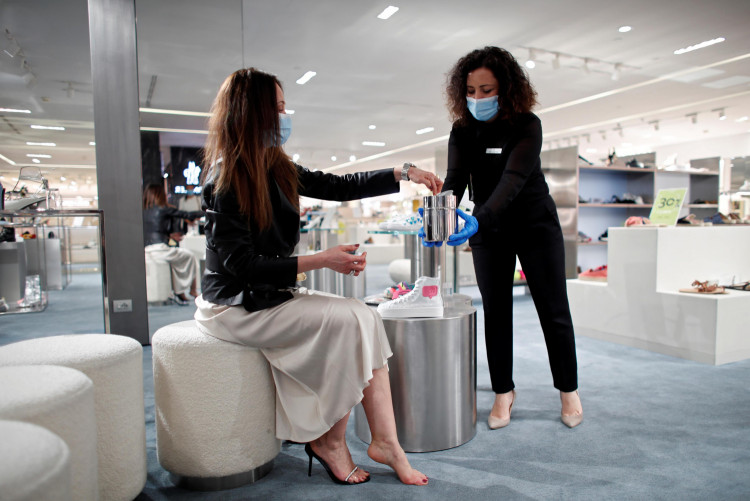On Monday, the Italian government will begin to remove coronavirus restrictions, but visitors will face tight rules in hotels, restaurants and on beaches.
Since early March Italy has carried out very strict COVID-19 lockdown steps. The government has set general guidelines for reopening for the country as a whole, while each region can implement their own changes depending on the specific situation.
Italy announced that it will allow international travel to and from the country starting June 3, as the nation continues to reopen after its harrowing coronavirus pandemic experience.
Italy's government wants to encourage its lucrative tourism sector to operate during the summer, according to the newspaper La Repubblica in Italy. The requirement that inbound travelers quarantine themselves for 14 days will also cease on June 3.
Some hope the move would revive a decimated tourism industry worth 13 percent of the gross domestic product of Italy. Such an opening is just what tourism operators were hoping for - even though European neighbors had seemed to be suspicious of the Italian unilateral declaration so far.
Germany, whose border is approximately a 4-hour drive from Venice through Austria, has instructed citizens not to travel abroad for tourism until June 15 at least. And officials in neighboring France have made it clear that they have been pursuing a concerted European border opening drive, suggesting that Italy has jumped the gun.
In the meantime, travel within regions will begin again on May 18, with the opening of day shops and restaurants, albeit under strict rules of social distance and hygiene. Religious activities will also resume.
Italy's 31,600 COVID-19 deaths since the epidemic started in February are the world's third-highest behind the United States and the United Kingdom but its infection rate has gradually declined. The government will continue to track the situation, predictably, as the restriction easing continues and Italians are well aware of the task ahead.
Italians can now be seen walking their city streets again, wearing protective masks and gloves, and starting Monday, all shops will reopen to the public, with new laws. Social distancing of at least one meter must still be maintained, and only a specified number of customers at a time will be able to enter shops.
Meanwhile, Italy's national federation of hotels said the sector had already shed 106,000 jobs by April, with occupancy dropping by 99 percent for foreigners and 96 percent for Italians. About half a million workers are at risk, according to the group, unless the summer season takes off.
According to a report by the national statistics agency ISTAT, measured from last year's turnover, the virus lockdown and suspension of tourism activities cost the country EUR 10 billion ($10.8 billion), the amount invested by foreigners in Italy from March to May 2019.






